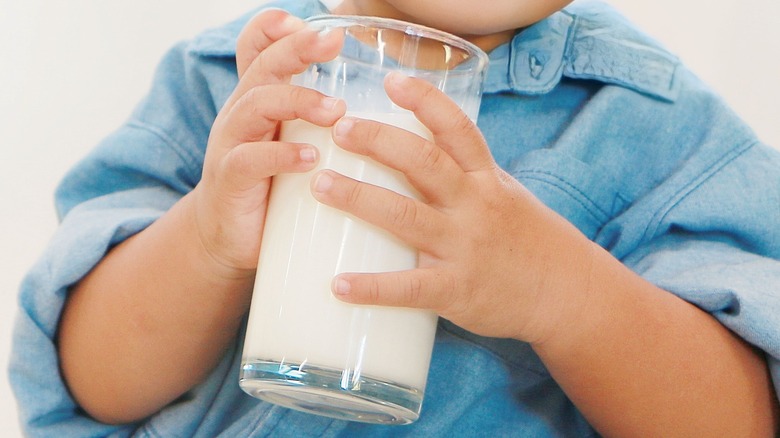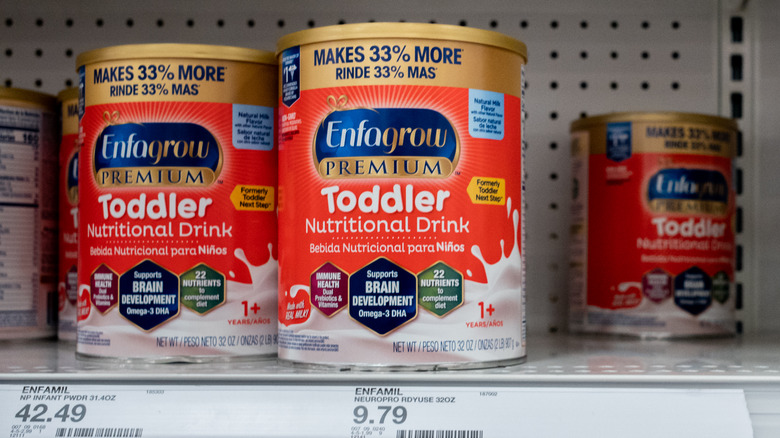The Case Against Toddler Milk
Parents know infants need breast milk — or infant formula — to get the necessary nutrition in their earliest months. When these babies grow into toddlers, however, this guidance becomes less clear, and parents often have to guess what their child should eat or drink. Now, some suggest that popular products labeled as "toddler milk" may not be as nutritious as they claim, or may not have benefits for a normal diet at all.
This determination comes from a new study from the American Academy of Pediatrics, which concluded that toddler milk products "can safely be used as part of a varied diet for children but do not provide a nutritional advantage in most children over a well-balanced diet." This well-balanced diet would include breast milk for younger children and cow's milk for older ones.
Part of the issue is that the term "toddler milk" is somewhat nebulous and unregulated. It typically refers to drinks made from a blend of powdered cow's milk, oils, and sugar that are also supplemented with vitamins and minerals, fiber, or probiotics. But these mixes differ from brand to brand, meaning the nutritional content, as well as other additives like sugar or preservatives, can vary widely. They also often have less protein and more fat than traditional milk, which is a less-than-ideal choice for growing bodies. What's more, prices for specially formulated toddler milk are notably higher than corresponding amounts of regular milk.
Toddler milk is a marketing nightmare for parents
Foregoing an ineffective product that stretches the already tight budgets of many parents seems like a no-brainer. However, toddler milk remains popular due to aggressive marketing aimed at concerned parents, a tactic that Dr. George Fuchs, a pediatrician who spoke to NPR, said created "endless" misconceptions about toddler milk's benefits. The American Academy of Pediatrics report on toddler milk also suggested that the product should be more clearly distinguished from traditional formula with altered labeling and by stocking it in a separate area.
Parents' use of this product mirrors other trends leading away from the traditional breast or cow's milk, though pediatricians warn not to put your baby on the almond milk diet, in particular. While suitable for an adult's balanced diet, a common lie about milk is that almond milk provides babies with suitable nutrition; in actuality, young children who drink it can experience serious issues like low bone density and failure to thrive, according to the American Academy of Pediatrics.

